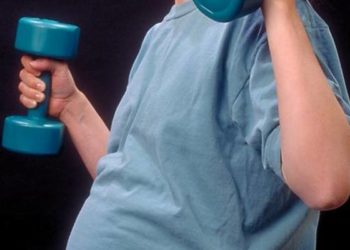Habitual diet choices may be linked to exercise-related abdominal complaints
1. In this cross-sectional study, it was found that habitual dietary intake of fat, tea, and unhealthy foods was positively associated with abdominal complaints (AC) during running.
2. Additionally, several personal characteristics were positively associated with exercise-related AC, including female sex, younger age, and running at a higher intensity.
Evidence Rating Level: 2 (Good)
Abdominal complaints (AC) are common among runners, both during and after physical activity. Although certain foods are known to play a role in the development and frequency of AC during activity, the impact of day-to-day nutritional intake on exercise-related AC is poorly understood. As a result, the present study investigated the dietary habits of a cohort of runners to elucidate the impact of daily nutrition on AC during physical activity.
The study enlisted a cohort of 1139 runners recruited through athletics clubs in the Netherlands and Belgium, social media, and following participation of the 2022 Rotterdam Marathon. Participants 18 years of age or older who had run at least once in the past year were included. Participants who reported an implausible dietary intake on the food frequency questionnaire (FFQ), defined as <800 and >4200kcal for men, and <500 and >3500kcal for women, were excluded. Information on general characteristics, running habits, AC, and habitual dietary intake was obtained through a general questionnaire and a FFQ completed by the participants once throughout the study. The primary outcome was the difference in habitual dietary intake in runners with and without AC.
The results demonstrated that certain habitual diet factors were positively associated with AC in runners, including a higher intake of fat, tea, and unhealthy foods. Furthermore, most participants with AC reported that eating too much before running and eating during running increased AC. Several personal characteristics were also associated with exercise-associated AC, including female sex, younger age, and running at a higher intensity. Despite this, the study was limited by the self-reported nature, which may have introduced bias in the dietary intake results. Nonetheless, the study demonstrated that the reduction of certain nutrients and food groups may reduce AC during exercise.
Click to read the study in BMJ Open Sport & Exercise Medicine
Image: PD
©2023 2 Minute Medicine, Inc. All rights reserved. No works may be reproduced without expressed written consent from 2 Minute Medicine, Inc. Inquire about licensing here. No article should be construed as medical advice and is not intended as such by the authors or by 2 Minute Medicine, Inc.







